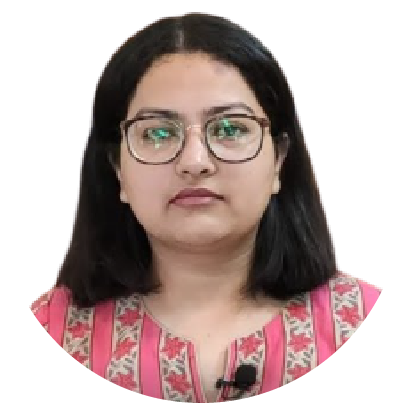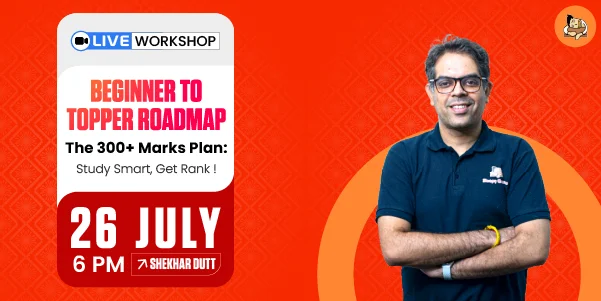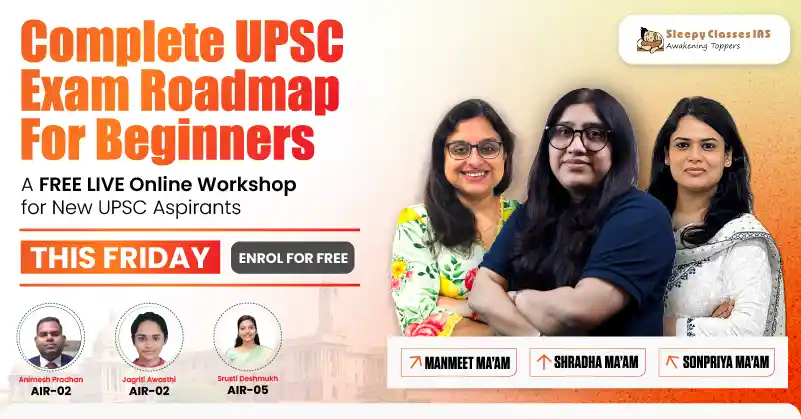| PPSC CSE Important Dates 2025 | |
| Date Of Notification | 3rd January 2025 |
| Prelims | September/October 2025 (Tentative) |
| Mains | To Be Announced |
| Interview | To Be Announced |
Punjab PCS
Punjab PCS 2025 Notification, Exam Date, Selection Process, Eligibility, Syllabus, Exam Pattern & More
Our Punjab PCS Toppers

Parleen Kaleka
Rank 3
Punjab PCS 2018

Jagdeep Sehgal
Rank 8
Punjab PCS 2014

Navjot Sandhu
Rank 24
Punjab PCS 2018
Important Dates
About the Exam
Punjab PCS 2025 notification has been released by the commission on 3rd January 2025. The Punjab Public Service Commission (PPSC) has been established under Article 315 of the Constitution of India, with the basic purpose of recruiting officials in various departments of the Government as per the requisitions sent by the Government in this regard from time to time. The Preliminary Combined Competitive Examination – 2025 will be tentatively held in September/October 2025 by the Commission.
Additional Punjabi Paper Resources
As per the official notification for PPSC 2025, No candidate shall be eligible for appearing in the Preliminary Competitive Examination, unless he/she has passed the Matriculation Examination with Punjabi as one of the compulsory or elective subjects or any other equivalent examination in Punjabi language, which may be specified by the Government from time to time.
The PSEB conducts Additional Punjabi Language Examinations twice a year – interested candidates for PPSC 2025 can appear for this exam, and must clear it before PPSC Prelims 2025 to be eligible for the Punjab State Civil Services Combined Competitive Examination 2025.
You can download the syllabus & resources for the PSEB Additional Punjabi Language Paper below:
Eligibility
1. Academic Qualifications:
a. The candidate should possess a bachelor degree in any discipline from a recognised university or institution; Provided that the candidate may be permitted to take preliminary examination while studying for the qualifying degree. However, the candidate shall be required to produce proof of qualifying the degree course for being eligible to take the Main Competitive Examination.
b. No candidate shall be eligible for appearing in the Preliminary Competitive Examination, unless he/she has passed the Matriculation Examination with Punjabi as one of the compulsory or elective subjects or any other equivalent examination in Punjabi language, which may be specified by the Government from time to time.
2. Age Limit:
a. As mandated by Punjab State Civil Services (Appointment by Combined Competitive Examination) Rules, 2009 read with Punjab Civil Services (Executive Branch) Rules 1976, and Govt. instructions issued from time to time, the candidate should have attained the minimum age of 21 years and should not have attained the age of 37 years on the first day of January of the year in which the last day for submission of application to the Commission falls. In other words, the candidate should have attained the age of 21 years but should not be older than 37 years.
b. The Upper age limit may be relaxed up to 42 years for Scheduled Castes and Backward Classes of Punjab only in case of other services except Punjab Police Service and Punjab Prisons Service.
c. Upper age limit may be relaxed up to 45 years for Punjab Govt. and its Board/Corporation/Commission and Authorities employees, all States/ Central Government employees. However no age relaxation is permissible for Punjab Police Service.
d. Ex-servicemen of Punjab Domicile shall be allowed to deduct the period of his service in the Armed Forces of Union from his actual age and if the resultant age does not exceed the maximum age limit prescribed for direct appointment to such a vacancy in the Service Rules concerned by more than three years, he shall be deemed to satisfy the condition regarding age limit.
e. Upper age limit may be relaxed up to 42 years for Widows, Divorced women and certain other Categories of women. However no age relaxation is permissible for women in case of Punjab Police Service and Punjab Prisons Service.
f. Upper age limit may be relaxed up to 47 years for Physically Handicapped of Punjab only. However no age relaxation is permissible in case of Punjab Police Service and Punjab Prisons Service.
g. In the case of the post of Deputy Superintendent Police and Deputy Superintendent Jails/District Probation Officer (Grade-II) in Punjab Police Service and Punjab Prisons Service, a candidate should have attained the minimum age of 21 years and should not have attained the age of 28 years on the first day of the year, as referred to above.
h. The Upper age limit may be relaxed up to 33 years for Scheduled Castes and Backward Classes of Punjab only in case of Punjab Police Service and Punjab Prisons Service.
3. Nationality
A candidate shall be a:
i) Citizen of India; or
ii) Citizen of Nepal; or
iii) Subject of Bhutan; or
iv) Tibetan refugee who came over to India before the Ist January. 1962, with the intention of permanently settling in India; or
v) A person of Indian origin who has migrated from Pakistan, Burma, Sri Lanka and East African countries of Kenya, Uganda and United Republic of Tanzania (formerly Tanganyika and Zanzibar) Zambia, Malawi, Zaire, Ethiopia and Vietnam with the intention of permanently settling in India;
Provided that a candidate other than the candidates possessing Indian nationality shall be a person in whose favour a certificate of eligibility has been issued by the Competent Authority as notified Punjab Civil Services (General and Common Conditions of Service) Rules, 1994.
4. No. of Attempts:
a. Unless covered by any of the exceptions, notified by Government in this behalf from time to time, the candidates belonging to the categories specified below, subject however, to the provisions of rule 7, may avail the following number of attempts as specified in the Table given below, at the examination, namely:
1. General – Six
2. Backward Classes – Nine
3. Scheduled Castes – Unlimited
b. For the purpose of this rule, an attempt in an examination includes an attempt made by the candidate in the preliminary examination conducted under these rules.
c. Ex-servicemen category candidates are permitted following attempts at the Examination:
1. General Ex-Servicemen – Six
2. Backward Classes Ex- Servicemen – Nine
3. Scheduled Castes Ex – Servicemen – Unlimited
5. Ineligibility Criterion:
The following conditions, among others, shall render the candidates ineligible for the Preliminary Competitive Examination:
a. Insufficient examination fee;
b. Examination fee deposited by means other than Bank Challan in any branch of the State Bank of Patiala.
c. Wrong/incomplete information given in the application form;
d. Candidates debarred by the PPSC/other Public Service Commissions;
e. Non-fulfillment of any of the eligibility conditions, including those of age and educational qualifications.
Examination Pattern
The PPSC CSE is a Three-Stage Examination:
|
Examination |
Exam Pattern |
Marks |
| Prelims | General Studies | 200 Marks |
| CSAT (Qualifying with 40% Cut-Off) | 200 Marks | |
| | ||
| Mains | Punjabi | 100 Marks |
| English | 100 Marks | |
| Essay | 150 Marks | |
| General Studies I | 250 Marks | |
| General Studies II | 250 Marks | |
| General Studies III | 250 Marks | |
| General Studies IV | 250 Marks | |
| Total – 1350 Marks | ||
| | ||
| Interview | 150 Marks |
Syllabus
PPSC Prelims Syllabus
PAPER I – GENERAL STUDIES
1. Everyday Science:
States of matter, structure of atom, versatile nature of carbon. Acids, bases, salts, corrosion in metals, action of soaps.
Life on Earth – evolution, marine & terrestrial life. Human body and life processes, nutrition, disease – its causes & prevention, infectious diseases, lifestyle diseases.
Public health initiatives, mother and child health, immunisation & vaccination, HIV-AIDS, TB, Polio etc.
Force-laws of motion & gravitation, Archimedes principle. Energy – kinetic & potential.
Light – reflection & refraction – concepts and applications. Sound – propagation & reflection- concepts and applications. Electric current – concepts and applications.
Computers and telecommunication – concepts and applications.
2. Environmental studies:
Composition and structure of the atmosphere. Solar system – heat balance & temperature.
Atmospheric circulation & weather system, water cycle.
Climate change – fossil fuels, greenhouse gases, renewable energy, clean development mechanism, carbon credits.
Water – oceans, rivers, glaciers, lakes, groundwater etc. Biodiversity & conservation.
Soil – types, crops, food chain etc. Pollution and toxicity etc.
3. Political theory & international order:
Basic concept of freedom, equality, social justice, rights & duties, citizenship, nationalism, secularism etc.
United Nations and its organs/agencies, other international organisations like the World Bank, IMF, WTO, EU, G20, BRICS etc. and their role in the World peace, trade & development.
4. Indian polity:
Basic features, provisions, schedules of the Indian Constitution, key amendments.
Panchayati Raj. Elections – People’s Representation Act, electoral reforms. Rise of regionalism and coalition politics.
Armed challenges to the Indian state since independence.
5. History of India:
The Indus valley civilisation.
The Aryan and the Vedic age. Jainism and Buddhism.
The Maurya Gupta periods.
Advent of Islam and Sultanate period (political, social & cultural). The Bhakti Movement.
The Mughals (political, social & cultural till Aurangzeb).
The coming of the European Powers and the advent of the British rule.
The Mutiny of 1857.
The British rule and the Indian National Movement (1857-1947)
World History:
The Renaissance and the Industrial Revolution in Europe. The American Revolution 1776.
The French Revolution 1789.
The Russian Revolution 1917.
World Wars I & II.
6. Indian Economy:
Indian economic development (1950-1991) – key economic policies, public sector dominance, bank nationalisation etc.
Five year plans – key goals and main achievements.
Liberalisation, privatisation and globalisation era since 1991 – key policies, decisions and results.
Performance of Indian economy since 1991 – Growth, fiscal & revenue deficits, trade, commerce & balance of payments, inflation, growth of service sector.
Key challenges and responses – agriculture and food security, industrialisation, poverty alleviation & employment, rural & urban infrastructure, social sector – health, education etc.
7. Geography:
Population – distribution, density, growth and comparison. Migration – types, causes and consequences.
Human development. Human settlements. Land resources and agriculture.
Water resources.
Mineral and energy resources. Manufacturing industries.
Planning and sustainable development in India. Transport and communication.
International trade.
Geographical perspective on selected issues and problems.
8. Current events of national and international importance.
9. Punjab
a) Geography:
Geographical and agro-climatic regions, rivers, water resources, sharing of waters, demographics, human development indices
b) People, Society and Culture:
Major personalities in history of Punjab, religious movements, major religions & spiritual personalities, Punjabi literature, folklore, performing arts, fine arts and crafts
c) History:
Sufis, saints and gurus, Lodhis and Mughals, Sikh rulers, the British period, nationalist movement in Punjab, Punjab in independent India.
d) Economy:
Agriculture, animal husbandry, industrial & service sectors, major occupations, development & economic growth, public finance (including central-state fiscal issues), public sector institutions, cooperatives etc.
PAPER II – CIVIL SERVICES APTITUDE TEST
- Reading comprehension; Punjabi and English language comprehension, antonyms and synonyms, grammar and sentence formation.
- Interpersonal skills including communication skills
- Logical reasoning, analytical and mental ability
- Basic numerical skills; numbers, magnitudes, percentages, numerical relation appreciation
- Data analysis; Graphic presentations, charts, tables, spreadsheets.
Note: The topics listed in the syllabus are only indicative for the general guidance of the candidates and cannot be deemed as exhaustive list.
PPSC Mains Syllabus
ENGLISH
|
SECTION A |
||
|
1. |
Comprehension (Unseen Passage) – An unseen passage followed by Questions to be answered |
10 Marks |
|
2. |
Precis writing – Passage to be summarized to 1/3rd |
10 Marks |
|
3. |
Letter writing – (200 words) |
10 Marks |
|
4. |
Essay writing – (Any general topic 300 words) |
10 Marks |
|
5. |
Translation |
10 Marks |
|
SECTION B |
||
|
6. |
Grammar |
50 Marks |
ਪੰਜਾਬੀ
|
ਭਾਗ – ੳ |
||
|
ਕੁੱਲ ਅੰਕ – 100 |
||
|
1. |
ਅਣਡਿੱਠਾ ਪੈਰ੍ਹਾ (ਪੈਰ੍ਹੇ ਨੂੰ ਪੜ੍ਹ ਕੇ ਪ੍ਰਸ਼ਨਾਂ ਦੇ ਉੱਤਰ ਦਿਓ) |
10 |
|
2. |
ਸੰਖੇਪ ਰਚਨਾ (ਪੈਰ੍ਹੇ ਦਾ ਢੁੱਕਵਾਂ ਸਿਰਲੇਖ ਦਿੰਦੇ ਹੋਏ ਇੱਕ ਤਿਹਾਈ ਸ਼ਬਦਾਂ ਵਿੱਚ ਸੰਖੇਪਰਚਨਾ) |
10 |
|
3. |
ਅਰਜ਼ੀ ਜਾਂ ਪੱਤਰ (200 ਸ਼ਬਦਾਂ ਵਿੱਚ) |
10 |
|
4. |
ਲੇਖ – ਰਚਨਾ (400 ਸ਼ਬਦਾਂ ਵਿੱਚ) |
10 |
|
5. |
ਅਨੁਵਾਦ |
10 |
|
ਭਾਗ – ਅ |
||
|
6. |
ਵਿਆਕਰਣ |
50 |
ESSAY – 150 MARKS
Candidates will be required to write three short essays in English or Punjabi on specified topics. The choice of subjects will be given. They will be expected to keep closely to the subject of the essay to arrange their ideas in an orderly fashion, and to write concisely. Credit will be given for content value, effective and exact expression.
GENERAL STUDIES – I
HISTORY, GEOGRAPHY & SOCIETY
SECTION 1: HISTORY
1.1 History of the world : Events from 18th century; industrial revolution, world wars, redrawal of national boundaries, colonization, decolonization, political philosophies like Communism, Capitalism, Socialism etc. – their forms and effect on society.
1.2 Indian culture- Salient aspects of Art Forms, Literature and Architecture from ancient to modern times.
1.3 Modern Indian history from the middle of the eighteenth century until the present – significant events, personalities and issues.
1.4 Socio-religious reform movements with special reference to Punjab.
1.5 The Freedom Struggle – its various stages and important contributors /contributions from different parts of the country with special reference to Punjab.
1.6 Post-independence consolidation and reorganization within the country.
1.7 History of Punjab:
1.7.1 Ranjit Singh’s rise to power, civil and military administration and relations with the British
1.7.2 Annexation of Punjab with special reference to the causes and consequences of the Anglo-Sikh wars.
SECTION 2: GEOGRAPHY
2.1 Physical Geography: Salient features of world’s physical geography. Distribution of key natural resources across the world (including South Asia and the Indian subcontinent); factors responsible for the location of primary, secondary, and tertiary sector industries in various parts of the world (including India)
2.2 Important Geophysical phenomena such as earthquakes, Tsunami, Volcanic activity, cyclone etc., geographical features and their location- changes in critical geographical features (including water-bodies and ice-caps) and in flora and fauna and the effects of such changes.
2.3 Geography of Punjab:
2.3.1. Physiographic details of Punjab; Geomorphic features of Punjab, Punjab’s strategic location with reference to International Border;
2.3.2. Crops of Punjab; Modern concepts of Farming; Problems faced by agriculturists/Issues in Agriculture: Depletion of ground water, etc;
SECTION 3: SOCIETY
3.1 Salient features of Indian Society, Diversity of India.
3.2 Role of women and women’s organization, population and associated issues, poverty and developmental issues, urbanization, their problems and their remedies
3.3 Effects of globalization on Indian society
3.4 Social empowerment, communalism, regionalism & secularism
3.5 Ethics and Society: Essence, determinants and consequences of Ethics in human actions; dimensions of ethics; ethics in private and public relationships.
3.6 Human Values – Role of family, society and educational institutions in inculcating values; lessons from the lives and teachings of great leaders and reformers- Gautam Buddha, Mahavira, Kabir, Guru Nanak; Swami Vivekananda, Jyotibha Phule, Ishwar Chandra Vidya Sagar and Mahatma Gandhi.
3.7 Vulnerable sections of the population – Welfare schemes by the Centre and State of Punjab and their performance; Mechanisms, laws, institutions and Bodies constituted for their protection and betterment.
3.8 Issues relating to development and management of Social Sector- Health, Education, Human Resources; Issues relating to Poverty and Malnutrition.
GENERAL STUDIES – II
INDIAN CONSTITUTION& POLITY, GOVERNANCE AND INTERNATIONAL RELATIONS
SECTION 1: INDIAN CONSTITUTION & POLITY
1.1 Indian Constitution- historical underpinnings, evolution, features, amendments, significant provisions and basic structure.
1.2 Functions and responsibilities of Union and the States, issues and challenges pertaining to the federal structure, devolution of powers and finances up to local levels and challenges therein.
1.3 Separation of powers between various organs; Dispute redressal mechanisms and institutions.
1.4 Comparison of the Indian constitutional scheme with that of other countries
1.5 Parliament and State Legislatures – structure, functioning, conduct of business, powers & privileges and issues arising out of these.
1.6 Structure, organization and functioning of the Executive and the Judiciary; Ministries and Departments of the Government; pressure groups and formal/informal associations and their role in the Polity.
1.7 Salient features of the Representation of People’s Act.
1.8 Appointment to various Constitutional posts; Powers, functions and responsibilities of various Constitutional Bodies
1.9 District Administration – Evolution of District Administration; Panchayati Raj Institutions and Urban Local Bodies.
SECTION 2: GOVERNANCE
2.1 Statutory, regulatory and various quasi-judicial bodies
2.2 Government policies and interventions for development in various sectors and issues arising out of their design and implementation; Development processes and the development organizations- the role of NGOs, SHGs, donors, charities, institutional and other stakeholders
2.3 Important aspects of governance, transparency and accountability, e-governance- applications, models, successes, limitations and potential; citizens charters, transparency & accountability and institutional and other measures; Role of civil services in a democracy; Changing trends in Governance
2.4 Values and Ethics in Governance- Ethical concerns and dilemmas in government and private institutions; laws, rules, regulations and conscience as sources of ethical guidance; accountability and ethical governance; strengthening of ethical and moral values in governance; ethical issues in international relations and funding.
2.5 Probity in Governance: Concept of Governance; Philosophical basis of governance and probity; corporate governance; Information sharing and transparency in government, Right to Information, Codes of Ethics, Codes of Conduct, Citizen’s Charters, Work culture, Quality of service delivery, Utilization of public funds, challenges of corruption.
SECTION 3: INTERNATIONAL RELATIONS
3.1 India and its neighborhood- relations;
3.2 Bilateral, regional and global groupings and agreements involving India and/or affecting India’s interests;
3.3 Effect of policies and politics of developed and developing countries on India’s interests, Indian Diaspora
3.4 Important International institutions, agencies and fora- their structure and mandate.
Note: The candidates are expected to be aware about the current developments related to the topics mentioned above.
GENERAL STUDIES – III
ECONOMY, STATISTICS AND SECURITY ISSUES
SECTION 1: INDIAN ECONOMY
1.1 Issues relating to planning, mobilization of resources, growth, development and employment; sustainable development; Inclusive growth and issues arising from it; Government Budgeting;
1.2 Major crops, cropping patterns in various parts of the country, different types of irrigation and irrigation systems; storage, transport and marketing of agricultural produce- issues and related constraints; e-technology in the aid of farmers; Issues related to direct and indirect farm subsidies and minimum support prices; Technology missions; economics of animal rearing.
1.3 Public Distribution System- objectives, functioning, limitations, revamping; issues of buffer stocks and food security;
1.4 Food processing and related industries in India- scope and significance, location, upstream and downstream requirements, supply chain management
1.5 Land reforms in India; Effects of liberalization on the economy, changes in industrial policy and their effects on industrial growth.
1.6 Infrastructure- Energy, Ports, Roads, Airports, Railways etc; Investment models
1.7 Human Resource Development:
1.7.1 Importance of Human capital in economic development
1.7.2 Nature, types and problems of unemployment in India, Trends of Employment in India, Skill development and demographic dividend
1.8 Punjab Economy: Planning- various aspects of developmental planning; Industry; Infrastructure.
SECTION 2: STATISTICAL ANALYSIS, GRAPHS AND DIAGRAMS
This part will test the candidate’s ability to draw conclusions from information presented in statistical, graphical or diagrammatical form and to interpret the same.
SECTION 3: ISSUES RELATED TO SECURITY
3.1 Linkages between development and spread of extremism;
3.2 Role of external, State and non-State actors in creating challenges to internal security; Challenges to internal security through communication networks; role of media and social networking sites in internal security challenges,
3.3 Basics of cyber security; money-laundering and its prevention;
3.4 Security challenges and their management in border areas; linkages of organized crime with terrorism.
3.5 Various Security forces and agencies and their mandate
Note: The candidates are expected to be aware about the current developments related to the topics mentioned above.
GENERAL STUDIES – IV
SCIENCE & TECHNOLOGY, ENVIRONMENT, PROBLEM SOLVING & DECISION MAKING
SECTION 1: SCIENCE AND TECHNOLOGY
1.1 Science and Technology:
1.1.1 Developments and applications of science and technology and their effects in everyday life
1.1.2 Achievements of Indians in science & technology; indigenization of technology and developing new technology.
1.1.3 Recent developments in the fields of IT, Space, Computers, robotics, nano- technology, etc.
1.1.4 Issues relating to intellectual property rights.
1.2 Modern Trends in Life Sciences
1.2.1 Progress of Agricultural Science and its impact– Introduction to Biotechnology and its applications; Veterinary and Animal Sciences – latest developments.
1.2.2 Introduction to and applications of Genetic Engineering & Stem Cell Research
1.2.3 Human Diseases and Microbial infections; Common infections and preventive measures; preventive measures during out breaks; Immunity and vaccination
SECTION 2: ENVIRONMENT
2.1 Conservation, environmental pollution and degradation, Issues related to Climate change; environmental impact assessment
2.2 Water management- Issues in India; Present scenario, Methods and importance of water conservation
2.3 Definition, nature, types and classification of disasters
2.4 Natural Hazards: Floods, earthquakes, tsunamis, landslides, etc., Risk reduction and mitigation measures
SECTION 3: SITUATIONS IN CIVIL SERVICE – PROBLEM SOLVING & DECISION MAKING
Tackling situations of Natural disasters/ Major Accidents/ Law and order, Controlling riots, Handling public protests and dharnas, Land Acquisition and Rehabilitation, Designing Projects, Implementation of National Flagship Schemes/ Programmmes, Public Private Partnership in effective service delivery, Managing and financing Municipal services e.g. Solid waste management, Conservation of natural resources- water, forests, etc, Pollution control, Reviving a loss making PSU, Planning and target achievement, Gender sensitization and women empowerment, Empowerment of vulnerable sections of the society, Improving Education and Enhancing Skill development, Urban settlement-Slums and Housing issues, Managing Issues related to Urban/ Rural drinking water supply and sanitation, etc.
Note: A duly structured situation will be presented to the candidates and they will be asked to analyze and suggest their own solution to the problem arising out of situation.




